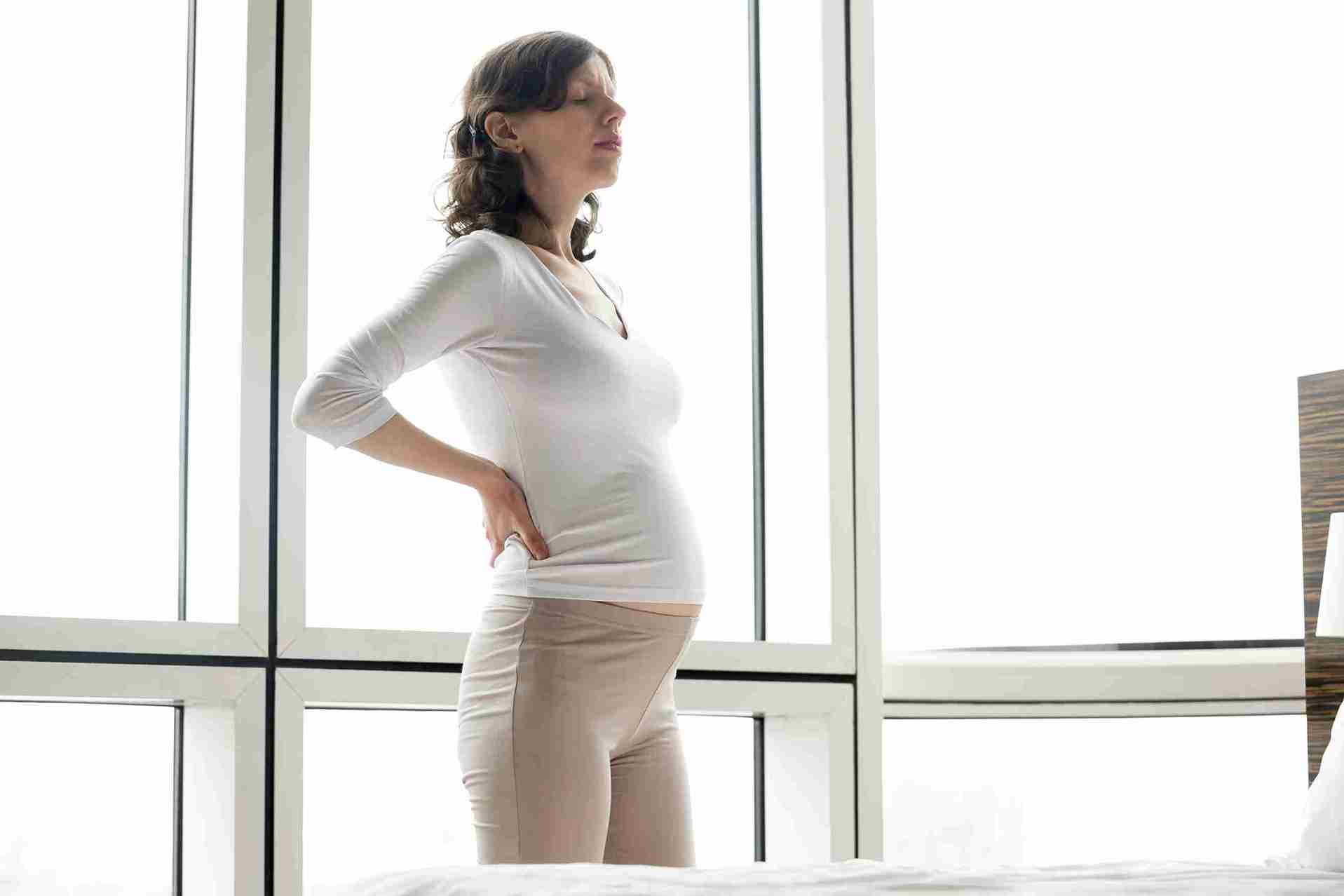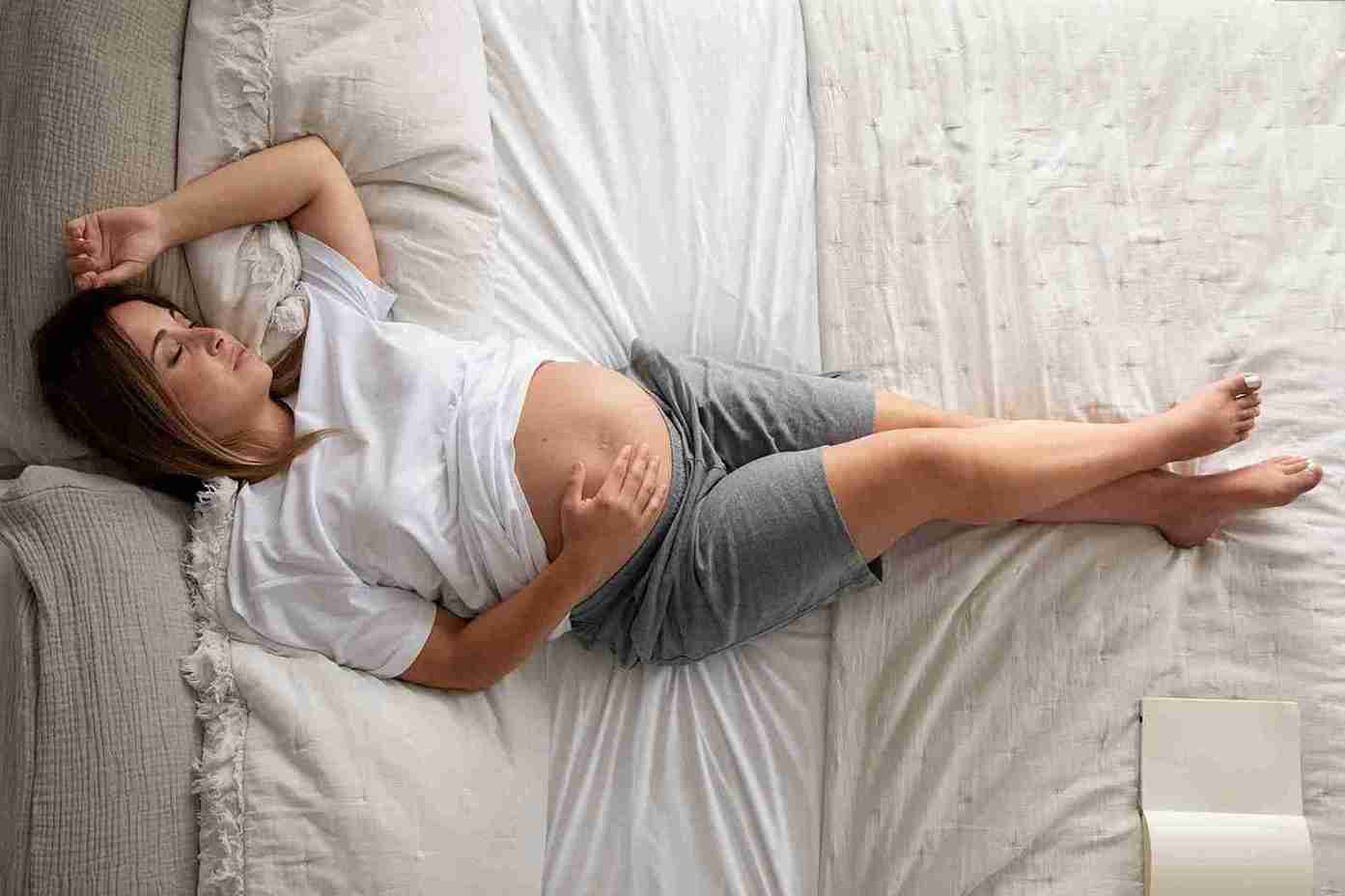
A baby bump is good news as it means the baby is growing as it should. But it is tough on the back, and back pain is common in most pregnant women. Due to weight gain, the body changes, and the abdominal muscles and spine weaken and stretch, leading to increased discomfort in the back. However, there's hope, as you can ease or prevent back pain. Continue reading to learn what causes pregnancy back pain and several tips to get relief from it.

The body undergoes many changes during pregnancy, which makes you susceptible to back pain. As the baby grows, pressure on the pelvis and spine increases, and with the progression of pregnancy, the baby bump discomfort also increases. Here are more detailed reasons for what causes back pain.
● Weight gain: A woman typically gains approximately 11 to 16 kg during a healthy pregnancy, and the spine must support this weight, which can lead to back pain. The weight of the uterus and the growing baby adds pressure on the nerves and the blood vessels in the back and pelvis.
● Posture: The centre of gravity shifts during pregnancy, and without even noticing, you adjust the way you move and your posture, which leads to strain or back pain.
● Hormonal changes: The body produces a hormone called relaxin during pregnancy, which allows the pelvic area's ligaments to relax and the joints to loosen in preparation for childbirth. Relaxin also loosens ligaments that support your spine, causing pain and instability.
● Muscle preparation: The rectus abdominis muscles extend from the rib cage to your pubic bone and may separate during pregnancy, which aggravates your back pain.
● Stress: Muscle tension increases during emotional stress, which is experienced as back spasms or back pain. You may feel more pain in your back during times of stress in pregnancy.
During pregnancy, treatments and medications for back pain are limited, so how can you get relief from back pain caused by the baby bump? Here are some simple ways:
Get your back in good shape before you get pregnant. When you have a strong core and back muscles, your body is in better shape and is prepared for the added stress the growing baby brings. If you have chronic pain, consult your healthcare provider ahead of time to care for your back during pregnancy.
As mentioned before, the centre of gravity changes as the baby grows. This shift causes you to lean back to compensate for tipping forward, straining your lower back muscles and potentially leading to back pain. Here are some tips to prevent this from happening.
● Stand straight and tall with your chest high
● Keep your back and shoulders relaxed
● Do not lock your knees and keep them slightly bent.
When standing, use a wide stance for balance. If you have to stand for a prolonged time, rest a foot on a step stool to ease the pressure on your back. When sitting for long periods, maintain good posture and use a supportive chair. Opt for lumbar support chairs or back support cushions for relief from lower back pain.
● Use flat shoes or low-heeled shoes that support your feet's arches. Avoid wearing high heels, as they can strain your lower back muscles and cause falls due to a shift in balance.
● Wear abdominal support for better back support. Called a pregnancy binder, it takes the weight of the stomach off the back muscles.
● Choose pants that come with an elastic band that sits under the belly curve to get more support for your stomach.
● Wear a pelvic support belt as it provides extra support.

Sleeping on your side instead of your back or stomach helps alleviate back pain. Keep both knees or one of your knees bent, or use pregnancy pillows for support. These pillows can be placed behind your back for comfort.
Proper lifting is essential, just like maintaining good posture during pregnancy. When lifting an object, ensure you have a stable footing, bend your knees, squat down, keep your back straight and lift using your leg strength. While lifting heavy objects, ask for help and stay within limits.
A warm bottle, hot pack, heating pad or ice pack can be placed on the back for relief from sore muscles. If using a heat pad, opt for the lowest temperature. Wrap it with a towel to reduce the chance of burns. A back massage is also a proven way to alleviate back pain.
Good stretching exercises are among the best ways to keep your back and core muscles strengthened and support your pregnancy. Many pregnant women find prenatal yoga also helpful. Regular physical activity, which includes walking, water exercise and other gentle exercises, strengthens your back and also gives relief from back pain during pregnancy. If massage and exercise don’t help, physical therapy is an option.
● Acupuncture: This traditional practice involves inserting thin needles through the skin at specific points on the body. Research suggests that this complementary therapy may be effective for lower back pain relief during pregnancy.
● Chiropractic: Some studies detail that chiropractic treatment may help with back pain during pregnancy. In this treatment, a licensed and trained specialist uses a small instrument or their hands to adjust the spine. When performed properly, this spine manipulation is generally safe; however, it is recommended that you consult with your healthcare provider before opting for this treatment.
● Counselling: If your back pain is stress-related, then talking to a counsellor may be beneficial.

Sometimes, back pain in pregnancy is an indication of a urinary infection or preterm labour. Call your doctor immediately if back pain is accompanied by
● Fever
● Vaginal bleeding
● A burning feeling when urinating
● Cramping
● Contractions
If you are pregnant and have been injured or had a fall, consult a healthcare provider as they may want to monitor your and the baby’s health.
The growing baby bump and back pain are the most uncomfortable and common parts of your pregnancy. Due to changes in body, posture shifts, weight gain and hormonal effects, there is an increased strain on your back, causing pain. But this does not mean you have to suffer in pain and overshadow the wonderful pregnancy experience. Practising good posture, choosing supportive gear, staying active, sleeping correctly, and exploring complementary therapies can help you manage and reduce back pain discomfort. Remember, if the pain is severe, followed by symptoms of cramping, fever, or vaginal bleeding, consult your doctor immediately.


Back pain in pregnancy is caused by weight gain, bad posture, hormonal changes, weakening of muscles and stress.

It can start as early as the first trimester, but is more common during the second and third trimesters, when the baby bump becomes more noticeable.

Correct your posture, choose appropriate gear, sleep on your side, stay active or opt for complementary therapies as a safe way to get back pain relief during pregnancy.

Yes. Prenatal massage is a safe and effective treatment for back pain when performed by qualified professionals.